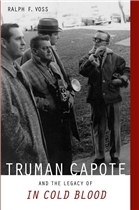Above is a picture of my grandmother's steamer chest. When she took the ship from Norway to America way back when, this trunk held all of her possessions.
The chest is now my sister's. In the process of dividing our parents' stuff that hasn't gone to where they live now, she got the trunk, and I got an antique kid's rocking chair from my parents, a chair I fondly remember sitting in as I read books and watched TV.
But there's a story behind the chest and my grandmother coming to America when she was very young. She came over when she was somewhere between eight and ten years old if I remember right. When she was sent to America, her parents stayed behind in Norway.
From what my mom has told me, my great-grandparents got a divorce in Norway at that time (sometime in the early 1900s), which had to be a badge of dishonor within a socially conservative Norwegian culture (think about Isben's
A Doll House, for example). Apparently, they got a divorce, and my great-grandfather then married a Swedish woman as his second wife. For reasons unknown or possibly out of spite, my great-grandmother sent her daughter to the US at a young age.
From what my mom says, my grandmother landed in New York City like other immigrants, and then she traveled by train to Montana to live with her aunt and uncle, who raised sheep therre. Eventually, her new family, which also included her aunt and uncle's children, moved from Montana to Montevideo, Minnesota.
But what gets me is that my grandmother was put on a steamship not knowing any English at all. All she had was this trunk and a tag around her wrist directing the higher-ups on the ship where she needed to go. What a precarious situation, but maybe it wasn't all that uncommon. I don't know. My mom tells me that my grandma told her that she remembered people talking to her, but she had no idea what they were saying.
As my mom says, her mom wouldn't talk much about the trip or her parents because, as you can imagine, the whole deal had to be traumatic and the cause of much bitterness. Grandma, I'm told, did talk fondly about living in Norway though--the beauty of the towns and surrounding countryside, the fjords, etc.
In contrast the troubling history associated the trunk, I have good memories of this steamer chest made of Norwegian pine.
The first thing I can remember from when I was very young was hiding in this chest when playing hide-n-seek with my nephews who would often visit during the weekends.
This chest is connected to my very first memory, the first thing I remember. I hid in it and thought myself very clever. It was not only a great spot to hide, but the red synthetic fur that lines the inside was fun to feel.
I did get in trouble for hiding in the chest though. I don't remember why exactly, but it probably was because it's an antique. I didn't get put in a time-out back then (did they even have such a thing in the early 70s?), but I remember my mom scolding me.
And in another positive note, Deloras also stored her Xmas ornaments and holiday brick-a-brack in this chest at our house on 1051 Wisconsin Street, the home where they lived since the late 50s. And I associate holidays at my house with Norwegian Christmas cookies--cringla and fudamumbuckles--and gatherings where the whole family opened presents on Christmas Eve.
If you were puzzled why I was playing hide-and-seek with my nephews, that's because I'm the last of my siblings. I was one of those happy accidents, or as Virg told me one time as we drank a few beers in the 19th Hole after playing golf, "
The damn rubber broke."
Because of the years separating my three siblings and me, my oldest brother has two sons who are actually older than their uncle (me).
But the strangeness of being the final kid is that I didn't get to know my grandparents just like my mom didn't know hers. Three of my four grandparents were gone before I popped out in 1971. I only met my grandmother, my dad's mom, once, and that meeting was at an old folks home (the old terminology) made of cinder block painted institutional white in rural northeastern Missouri. The only remark I remember her making to me, if I remember right, was "You're Judi's brother, right?" Then my dad shuffled me off to some waiting room-like area where I watched TV and he talked to his mom.
I didn't write the digression about my experience with grandparents (mainly lack thereof) in some attempt to milk sympathy from readers.
Rather, I'm just happy that my kids know their grandparents.
The mementos from the past--the rocking chair, the 4/10 shotgun I have of my grandfather's, etc.--are nice, but they don't beat the lived experience.






















